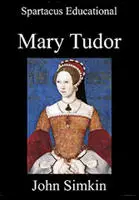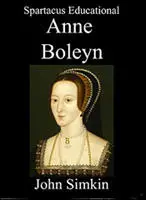Edward Thwaites
Edward Thwaites has been described as a "Kentish gentleman". (1) The date of his birth is not known. In 1525 he witnessed Elizabeth Barton in a trance. "It happened a certain maiden named Elizabeth Barton... to be touched with a great infirmity in her body, which did ascend at diverse times up into her throat, and swelled greatly, during the time whereof she seemed to be in grievous pain, in so much as a man would have thought that she had suffered the pangs of death itself, until the disease descended and fell down into the body again." (2)
According to Barton's biographer, Diane Watt: "In the course of this period of sickness and delirium she began to demonstrate supernatural abilities, predicting the death of a child being nursed in a neighbouring bed. In the following weeks and months the condition from which she suffered, which may have been a form of epilepsy, manifested itself in seizures (both her body and her face became contorted), alternating with periods of paralysis. During her death-like trances she made various pronouncements on matters of religion, such as the seven deadly sins, the ten commandments, and the nature of heaven, hell, and purgatory. She spoke about the importance of the mass, pilgrimage, confession to priests, and prayer to the Virgin and the saints." (3)
In 1527 Edward Thwaites published a 24 page account of Elizabeth Barton's visions entitled, A Marvellous Work of Late Done at Court-of-Street. (4) It is claimed that Edward Bocking encouraged her to speak out against religious reformers inspired by the writings of Martin Luther. "Bocking... is said to have induced her to declare herself an inspired emissary for the overthrow of Protestantism and the prevention of the divorce of Queen Catherine.... There is little doubt that he was her chief instigator in the continuance of her career of deception. His share in the affair, though it cannot be excused, must be ascribed to a mistaken zeal for the preservation of the ancient Faith." (5)
In the summer of 1533 Archbishop Thomas Cranmer wrote to the prioress of St Sepulchre's Nunnery asking her to bring Elizabeth Barton to his manor at Otford. On 11th August she was questioned, but was released without charge. Thomas Cromwell then questioned her and, towards the end of September, Edward Bocking was arrested and his premises were searched. Bocking was accused of writing a book about Barton's predictions and having 500 copies published. Edward Thwaites was also arrested during this period. (6)
Parliament opened on 15th January 1534. A bill of attainder charging Edward Thwaites, Elizabeth Barton, Edward Bocking, Henry Risby (warden of Greyfriars, Canterbury), Hugh Rich (warden of Richmond Priory), Henry Gold (parson of St Mary Aldermary) and Thomas Gold, with high treason, was introduced into the House of Lords on 21st February. It was passed and then passed by the House of Commons on 17th March. They were all found guilty and sentenced to be executed on 20th April, 1534. They were "dragged through the streets from the Tower to Tyburn". (7)
On the scaffold Elizabeth Barton told the assembled crowd: "I have not been the cause of my own death, which most justly I have deserved, but also I am the cause of the death of all these persons which at this time here suffer. And yet, to say the truth, I am not so much to be blamed considering it was well known unto these learned men that I was a poor wench without learning - and therefore they might have easily perceived that the things that were done by me could not proceed in no such sort, but their capacities and learning could right well judge from whence they proceeded... But because the things which I feigned was profitable unto them, therefore they much praised me... and that it was the Holy Ghost and not I that did them. And then I, being puffed up with their praises, feel into a certain pride and foolish fantasy with myself." (8)
| Spartacus E-Books (Price £0.99 / $1.50) | ||||||
|---|---|---|---|---|---|---|
Primary Sources
(1) Edward Thwaites, A Marvellous Work of Late Done at Court-of-Street (1527)
About the time of Easter, in the seventeenth year of the reign of Henry VIII, it happened a certain maiden named Elizabeth Barton... to be touched with a great infirmity in her body, which did ascend at diverse times up into her throat, and swelled greatly, during the time whereof she seemed to be in grievous pain, in so much as a man would have thought that she had suffered the pangs of death itself, until the disease descended and fell down into the body again.
Thus she continued by fits the space of seven months and more, and at the last, in the month of November (at which time a young child of her master's lay desperately sick in a cradle by her) she, being vexed with the former disease, asked (with great pangs and groaning) whether the child were yet departed this life or no; and when the women that attended upon them both in their sickness answered no, she replied that it should anon. Which word was no sooner uttered, but the child fetched a great sigh and withal the soul departed out of the body of it.
(2) Elizabeth Barton, speech on scaffold (20th April, 1534)
I have not been the cause of my own death, which most justly I have deserved, but also I am the cause of the death of all these persons which at this time here suffer. And yet, to say the truth, I am not so much to be blamed considering it was well known unto these learned men that I was a poor wench without learning - and therefore they might have easily perceived that the things that were done by me could not proceed in no such sort, but their capacities and learning could right well judge from whence they proceeded... But because the things which I feigned was profitable unto them, therefore they much praised me... and that it was the Holy Ghost and not I that did them. And then I, being puffed up with their praises, feel into a certain pride and foolish fantasy with myself.
Student Activities
Henry VIII (Answer Commentary)
Henry VII: A Wise or Wicked Ruler? (Answer Commentary)
Henry VIII: Catherine of Aragon or Anne Boleyn?
Was Henry VIII's son, Henry FitzRoy, murdered?
Hans Holbein and Henry VIII (Answer Commentary)
The Marriage of Prince Arthur and Catherine of Aragon (Answer Commentary)
Henry VIII and Anne of Cleves (Answer Commentary)
Was Queen Catherine Howard guilty of treason? (Answer Commentary)
Anne Boleyn - Religious Reformer (Answer Commentary)
Did Anne Boleyn have six fingers on her right hand? A Study in Catholic Propaganda (Answer Commentary)
Why were women hostile to Henry VIII's marriage to Anne Boleyn? (Answer Commentary)
Catherine Parr and Women's Rights (Answer Commentary)
Women, Politics and Henry VIII (Answer Commentary)
Cardinal Thomas Wolsey (Answer Commentary)
Historians and Novelists on Thomas Cromwell (Answer Commentary)
Martin Luther and Thomas Müntzer (Answer Commentary)
Martin Luther and Hitler's Anti-Semitism (Answer Commentary)
Martin Luther and the Reformation (Answer Commentary)
Mary Tudor and Heretics (Answer Commentary)
Joan Bocher - Anabaptist (Answer Commentary)
Anne Askew – Burnt at the Stake (Answer Commentary)
Elizabeth Barton and Henry VIII (Answer Commentary)
Execution of Margaret Cheyney (Answer Commentary)
Robert Aske (Answer Commentary)
Dissolution of the Monasteries (Answer Commentary)
Pilgrimage of Grace (Answer Commentary)
Poverty in Tudor England (Answer Commentary)
Why did Queen Elizabeth not get married? (Answer Commentary)
Francis Walsingham - Codes & Codebreaking (Answer Commentary)
Codes and Codebreaking (Answer Commentary)
Sir Thomas More: Saint or Sinner? (Answer Commentary)
Hans Holbein's Art and Religious Propaganda (Answer Commentary)
1517 May Day Riots: How do historians know what happened? (Answer Commentary)




